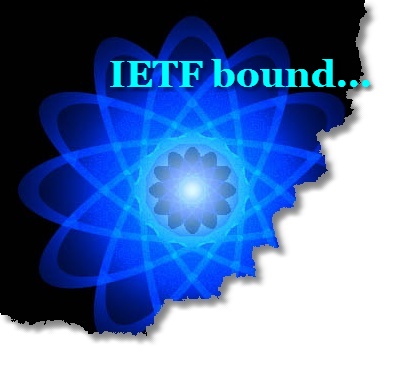 Sam Ruby has announced that development of the Atom specification is moving to the IETF.
Sam Ruby has announced that development of the Atom specification is moving to the IETF.
This is great news.
I've been less than enthusiastic about the Atom specification development (ASD1) effort for a couple of reasons. First and foremost, it has proven, to me at least, to be impossible to fully come up to speed on and get involved with. The tools that Sam chose to facilitate the discussion surrounding ASD gave preference, probably unwittingly, to those that were first on the scene. I found it impossible to a) gain a full appreciation for the project and b) determine what the current and outstanding tasks were in order to gauge where my input would be most useful.
Moving ASD to the IETF immediately eliminates this problem. The IETF employs well-defined processes that openly and fairly drive effort towards a common set of goals - technical excellence, tested operability and interoperability and clear documentation - in a timely manner. This usually means that those that want to get involved can, that those with the most to contribute can and eventually, that the community will benefit from a standard that is widely supported. RFC 2026 explains this process in full, but as it relates to syndication and publishing formats, the most important passage is this one:
"In general, an Internet Standard is a specification that is stable and well-understood, is technically competent, has multiple, independent, and interoperable implementations with substantial operational experience, enjoys significant public support, and is recognizably useful in some or all parts of the Internet."
Moving the development of the Atom specification makes the "format war" irrelevant. As I've mentioned before, the noise that exists around the question of which format has the most merit for users or implementors becomes a moot point if this specification is developed within the IETF. The resultant specification will be the standard. Those implementors that abide by that specification will be standards compliant and those that don't won't be. There will be future battles over whose implementation is compliant and whose isn't, but there can be no further disagreement over which format is the actual standard.
And something to look forward too - the beautiful thing about the IETF process is that the ATOM specification as it exists today becomes a proposal for any working group looking at developing a syndication and publishing standard. Anyone may submit an alternative proposal and all such proposals will be evaluated on their merits. There are no foregone conclusions. It also means that, perhaps for the first time, you will be able to see the RDF and RSS people in the same room, at the same time working towards the same goal.
I like it, I like it a lot.
Thanks Sam.
1[ I'm only using the abbreviation here because I'm lazy and typing out "ASD" looks way cooler than "Atom specification development". Please don't steal it. Acronyms are bad things and I shouldn't be using them either]



